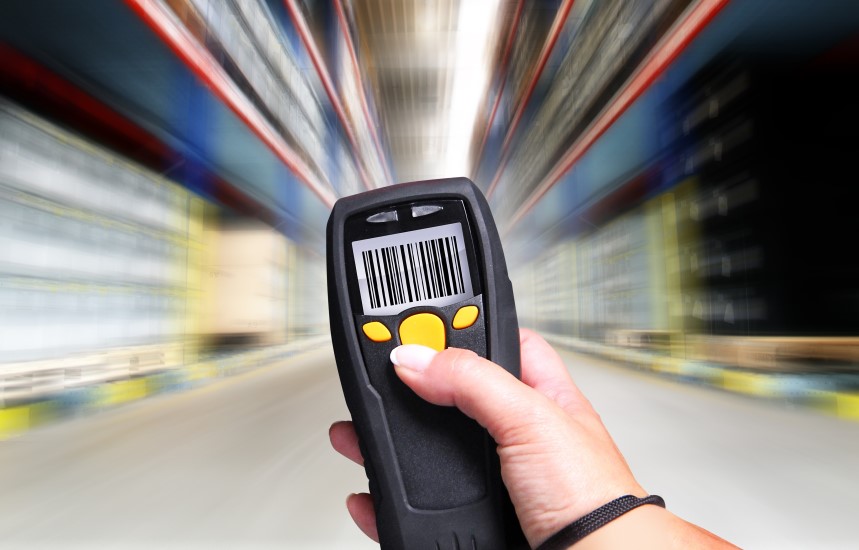Barcodes Scanners Ideal for Inventory Systems
Barcodes Scanners Ideal for Inventory Systems
Blog Article
Picking the Right Barcode Scanner for Your Service Requirements
Selecting the proper barcode scanner for your business needs a nuanced understanding of your specific functional requirements and environmental problems. Variables such as scanner type, rate, and compatibility with existing systems play an essential role in identifying the best choice.
Recognizing Barcode Scanner Kind
When it involves selecting a barcode scanner, recognizing the different kinds offered is essential for meeting specific service demands. Barcode scanners can be classified right into numerous types, each created for various applications and atmospheres.
Handheld scanners are one of the most typical, offering mobility and simplicity of usage, making them appropriate for retail and stock monitoring. They generally attach by means of USB or Bluetooth, supplying adaptability in operation. Fixed-mount scanners, on the various other hand, are designed for high-volume scanning applications, commonly located in setting up lines or check out counters. These scanners are placed in a fixed position, enabling quick scanning of numerous items one by one.
One more type is the mobile computer system, which integrates scanning abilities with calculating power. These devices are suitable for field operations or storehouse administration, enabling data collection and real-time supply monitoring. Additionally, there are industrial scanners that are built to hold up against harsh settings, such as severe temperatures or direct exposure to dirt and moisture.

Key Features to Think About
What essential functions should companies focus on when choosing a barcode scanner? Scanning speed is important, as faster scanners enhance operational efficiency, specifically in high-volume environments. The scanner's capability to review different barcode layouts is additionally essential; guarantee it sustains preferred types like QR codes, UPC, and Code 128 to suit varied inventory items.
Toughness is another vital attribute, specifically for companies in tough settings. Seek models that are developed to stand up to declines, dirt, and moisture. Additionally, consider the connection alternatives readily available; whether you choose USB, Bluetooth, or Wi-Fi, the right connection can enhance integration with existing systems.

Examining Your Service Setting
To successfully choose a barcode scanner, businesses should take stock of their particular functional atmosphere. This evaluation includes examining the physical format of the workspace, the nature of the products being checked, and the normal conditions under which scanning happens. For example, a retail environment may call for portable scanners that can quickly refine deals at the checkout, while a warehouse setting may benefit from ruggedized scanners designed to sustain harsher conditions.
In addition, take into consideration the quantity of scanning required. High-throughput settings might necessitate advanced scanning technologies, such as fixed-position scanners or mobile gadgets that can operate effectively in fast-paced situations. The assimilation capabilities with existing inventory management systems additionally play an important role; guarantee the picked scanner can effortlessly attach with software platforms in operation.
In addition, examine the possibility for growth and scalability. A my company scanner that fulfills existing needs may not be adequate as service expands. By extensively assessing these factors, businesses can choose a barcode scanner that not only meets immediate requirements however likewise sustains long-lasting functional efficiency and flexibility. This tactical method eventually contributes to smoother procedures and improved efficiency.
Budgeting for Your Scanner
Having examined the functional atmosphere and determined the certain demands for a barcode scanner, the following step involves mindful budgeting to make sure a clever economic investment. Establishing a spending plan begins with determining the general expenses connected with the scanner, consisting of initial purchase rate, functional expenses, and possible upkeep costs.
When choosing a barcode scanner, consider the range of readily available alternatives, from handheld gadgets to fixed-position scanners, as prices can differ dramatically. It is important to stabilize price with capability; choosing a more budget friendly model might cause increased operational ineffectiveness if it does not satisfy your service try this site requirements.
In addition to the hardware, consider expenses associated with software, training, and possible upgrades. While it might be alluring to lessen upfront expenditure, buying a quality scanner that aligns with your operational requirements can produce lasting cost savings through enhanced efficiency and minimized downtime.
Last but not least, take into consideration the overall expense of ownership, which includes the scanner's life expectancy and potential resale worth. By diligently planning your budget, you can ensure that your investment in a barcode scanner will improve your functional efficiency and economic efficiency.
Integration With Existing Equipment
Integrating a barcode scanner with your existing systems is vital for optimizing its effectiveness and making sure smooth operations. barcodes scanners. A well-integrated scanner boosts workflow effectiveness, decreases errors, and increases data handling. When picking a barcode scanner, think about compatibility with your current software application and equipment infrastructure, including your supply monitoring systems, point-of-sale (POS) systems, and business source planning (ERP) solutions
Examine whether the scanner utilizes standard methods such as USB, Bluetooth, or Wi-Fi, which can promote simple assimilation. In addition, assess whether the scanner's software supplies APIs or SDKs that enable customization and assimilation with exclusive systems. This is specifically important for companies with one-of-a-kind functional needs.
Furthermore, take into consideration the scalability of the scanning solution. As your organization grows, your systems ought to be able to suit added scanners and manage enhanced data volumes without considerable reconfiguration. Eventually, purchasing a barcode scanner that effortlessly integrates with your existing systems will yield long-lasting benefits, enhancing accuracy, efficiency, and general performance within your operations. Take the time to thoroughly evaluate your integration needs before buying decision.

Verdict
In conclusion, choosing a proper barcode scanner demands a thorough examination of various elements, including scanner types, necessary attributes, and the specific business setting. The best see page barcode scanner serves as an essential device in improving procedures and assisting in reliable inventory administration.
Report this page